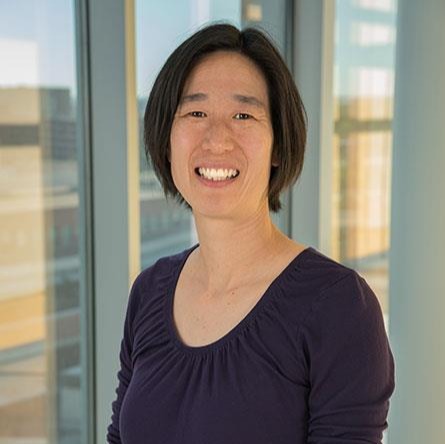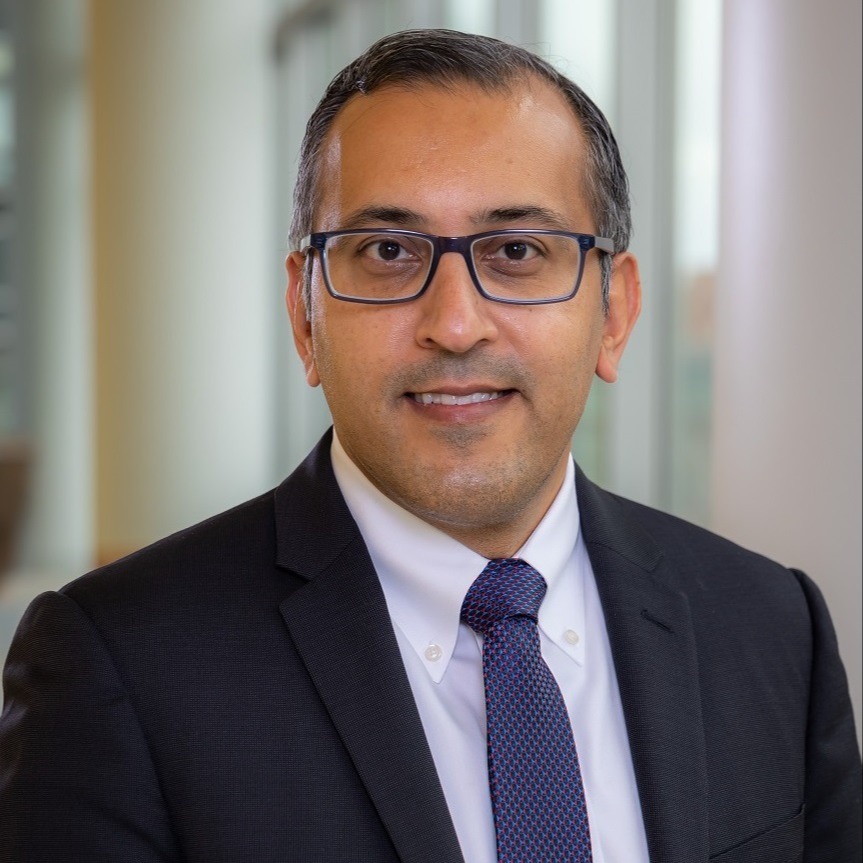In recognition of her exceptional work in advancing health equity, the Society of General Internal Medicine (SGIM) bestowed its 2024 Herbert W. Nickens Award to Rita Lee, MD, a University of Colorado Department of Medicine faculty member, at a May 17 meeting in Boston.
“The committee has chosen to honor you as an exemplary SGIM member who has made prioritizing minority health and diversity the primary focus of your career,” Alana Biggers, MD, MPH, the chair of the award selection committee, said in a congratulatory letter to Lee.
The Herbert W. Nickens Award honors a member of SGIM, a global association of more than 3,300 academic general internists, for demonstrating outstanding commitment to cultural diversity in medicine or improving minority health.
CU Department of Medicine Chair Vineet Chopra, MD, MSc, who serves as an SGIM council member, says this is the highest award given by SGIM for promoting justice and cultural diversity in medicine.
“Dr. Lee is truly a phenomenon. She is committed, passionate, and dedicated to the mission of improving diversity in medicine,” Chopra says. “She is most deserving of this recognition.”
Lee, a professor and the associate division head of education for the Division of General Internal Medicine, has been a member of SGIM for more than 20 years. Throughout her career, she has dedicated herself to promoting health equity for patients and health professionals alike, such as helping create the UCHealth Integrated Transgender Program and the Foundations in Equity Certificate Program.
In her letter, Biggers said Lee has forged “a new path in academic medicine that future generations of physicians can confidently emulate.”
“Ultimately your brilliance and fortitude has fostered a sphere of influence that has changed not only your home institution but has far reaching impact nationally and within Society of General Internal Medicine,” Biggers added.
When Lee opened the letter and learned she had won the award, she stared at it in disbelief, saying she felt shocked, surprised, and humbled.
“To me, it represents the work of many different teams I’ve been fortunate to be a part of, and it’s an acknowledgement of the importance of what we collectively do,” she says. “It’s not just about me. It’s really about everybody trying to move in the right direction.”
 Rita Lee, MD, left, smiling with her award alongside SGIM President Martha S. Gerrity, MD, MPH, PhD, FACP, on May 17, 2024.
Rita Lee, MD, left, smiling with her award alongside SGIM President Martha S. Gerrity, MD, MPH, PhD, FACP, on May 17, 2024.
Becoming a leader for health equity
Even as a child, Lee knew she one day wanted to become a doctor, with her first patients being stuffed animals.
Her interest in doing health equity work came later, when she attended medical school at UCLA in the ‘90s. In the middle of her medical schooling, she came out to herself as a lesbian.
“Things were very different back then. It was a time when being out could get you kicked out of the profession,” she says. “I had a couple of health care experiences that were not very inclusive or friendly, and I also realized that I didn't get any education in LGBTQ+ health in medical school training.”
She and her classmates had very few patient cases or lectures that involved LGBTQ patients, or even patients with Asian identities, says Lee, who is Chinese.
“As somebody who was relatively empowered and knew the medical system, I didn't feel welcome or included. I figured if I felt this way — what is it like for our patients?” Lee says.
She began introducing LGBTQ-related content to her medical school, beginning a pattern of advocacy that would extend the rest of her career.
‘We can change society’: A look at Lee’s impact
Today, Lee advances health equity in a variety of ways. She is a founding member of the UCHealth Integrated Transgender Program, where a team of professionals work to provide gender-affirming care to transgender and gender diverse adults.
Lee is also the director of the Health Equity in Action Lab for the CU Anschutz Office of Diversity, Equity, Inclusion, and Community Engagement. In this role, she helped develop the Foundations in Equity Certificate Program to train people on topics like implicit bias, equity, and inclusive language.
“We realized when different, siloed groups were doing work on diversity, they were all talking about different things. We created the certificate program to be able to have shared language and framework across this campus for how we want to do things,” she says.
“We broke things down so it doesn’t seem overwhelming and shows people how they can be more inclusive. And we’re hearing from a lot of people that they are beginning to feel a sense of belonging from doing this work and are feeling empowered to make changes,” she adds.
As the co-director for Health and Society, the CU School of Medicine’s health systems science curriculum, Lee is proud to have helped develop a curriculum with a health equity lens.
“We built a case review committee to try to decrease a lot of the stereotyping and stigma that was in the curriculum before it was reformed,” she says. “Our hope is that health equity and the determinants of health are now engrained in students’ minds as they move into practice.”
> ‘Shining a Light on our Incredible People’: CU Department of Medicine Presents Faculty & Staff Awards
Her work as an advocacy leader extends beyond the CU Anschutz campus. She sits on the advisory board for the National LGBTQIA+ Health Education Center, and she also chaired an SGIM anti-racist work group, helping develop anti-racist policies for the organization.
“For me, my mission has been examining, understanding, and then dismantling structural racism and oppression. It’s within our educational system, and it’s within our health care system. Those are the two areas I primarily focus on,” she says.
“As an educator who is also teaching others an approach to do this themselves, my hope is to shape future physicians, practitioners, researchers, and all the people on this campus, and to encourage them to advocate within their spheres of influence to be the change,” she adds. “We are society; therefore, we can change society.”





